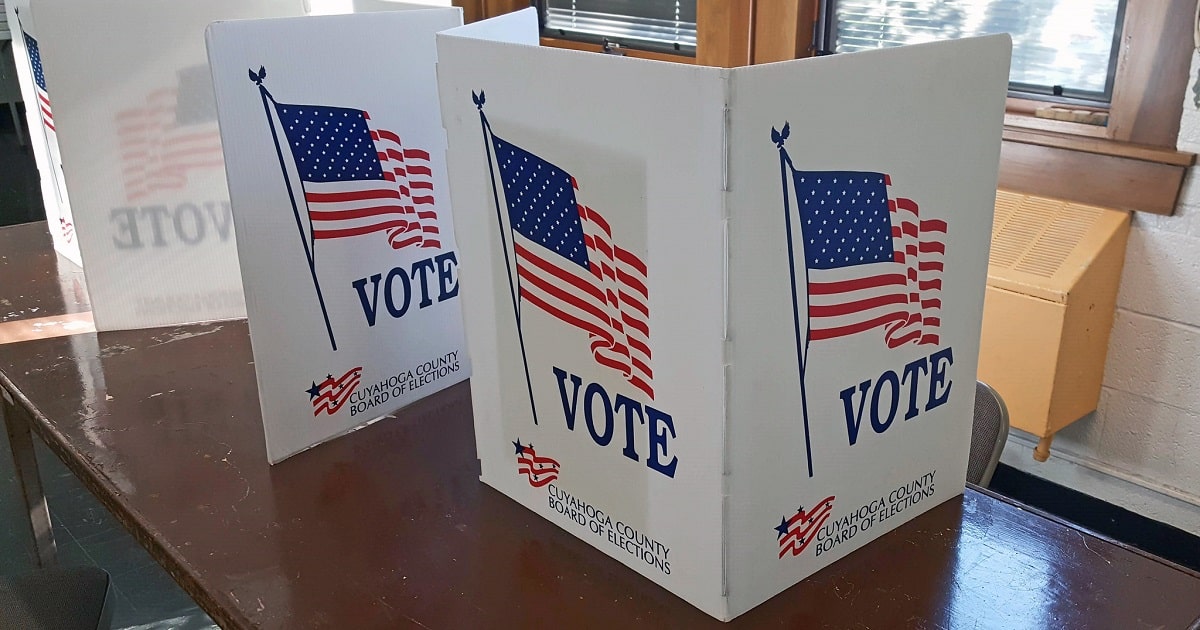




House Speaker Mike Johnson, R-La., has thrown a political grenade into the government funding fiasco by canceling House activities for the week after October 7, 2025, signaling a bare-knuckles standoff with Senate Democrats.
Fox News reported that the 2025 government shutdown trudges into its second week, Johnson's move to keep lawmakers in their districts until at least October 14, 2025, has deepened the deadlock with Senate Minority Leader Chuck Schumer, D-N.Y., over how to fund federal agencies.
This partial shutdown stems from Congress's inability to agree on federal funding, with the House last in full session on September 19, 2025.
The chamber was slated to return to a regular schedule on October 7, 2025, but Johnson pulled the plug, opting for a strategy that seems designed to turn up the heat on Democrats. It's a classic chess move—force the other side to blink first.
Johnson's cancellation of House votes appears to be a calculated jab at Senate Democrats, who have shot down the GOP’s short-term funding plan four times.
The Republican proposal offers a largely flat extension of current fiscal year funding levels, including $88 million for security measures for lawmakers, the White House, and the judiciary—a bipartisan no-brainer. Yet, Democrats refuse to budge, pushing their own agenda instead.
Senate Democrats are demanding extensions for enhanced Obamacare subsidies from the pandemic era, set to lapse by year’s end without action, alongside other priorities like healthcare funding.
Their counter-proposal, a continuing resolution to keep the government running through October 31, 2025, seeks to undo GOP cuts to Medicaid and restore federal dollars to NPR and PBS, slashed earlier this year by the Trump administration.
Republicans, understandably, call this a partisan wish list, pointing out Democrats supported simpler, "clean" measures repeatedly under the previous administration.
Let’s not pretend this is just about numbers on a spreadsheet—it’s a battle of wills. Democrats in both chambers are visibly irritated at being sidelined in these funding talks, while GOP leaders argue they’ve offered a reasonable stopgap. The frustration is palpable, but so is the political posturing.
Senate Minority Leader Chuck Schumer, D-N.Y., didn’t hold back, saying during a recent news conference, “Johnson and the House Republicans care more about protecting the Epstein files than protecting the American people.”
Nice soundbite, but let’s unpack that—Johnson’s cancellation also delays a potential vote on forcing the Department of Justice to release more documents tied to Jeffrey Epstein, a pet project of Reps. Thomas Massie, R-Ky., and Ro Khanna, D-Calif. Schumer’s jab sidesteps the core issue of funding and pivots to a distraction, hoping to paint Republicans as secretive rather than pragmatic.
The Epstein files vote delay isn’t trivial, though—Massie and Khanna are just one signature shy of forcing a vote, a signature they might have secured if Rep.-elect Adelita Grijalva, D-Ariz., had been sworn in during the now-canceled week.
House GOP leaders, however, have dismissed the petition as a sideshow, already tasking the House Oversight Committee with probing the DOJ’s handling of Epstein’s case. It’s a fair point: why force a redundant vote when the gears are already turning?
Meanwhile, back on September 29, 2025, Schumer and House Minority Leader Hakeem Jeffries, D-N.Y., met with President Donald Trump and Republican brass to hash out this funding crisis. Clearly, that powwow didn’t yield much, as we’re still stuck in this quagmire. High-level talks with no results—sounds like Washington’s favorite pastime.
Johnson’s decision to keep the House on hiatus wasn’t a spur-of-the-moment tantrum—sources revealed to Fox News Digital that GOP leaders mulled several strategies, including this cancellation, pending a Senate vote on a recent Friday afternoon.
The Senate’s rejection of the GOP plan yet again likely sealed the deal. It’s a risky play, but it sends a message: Republicans aren’t folding easily.
Democrats, for their part, argue their proposal is the responsible path forward, reversing what they see as harmful cuts and protecting vital programs.
But let’s be real—loading a stopgap funding bill with ideological baggage isn’t exactly a recipe for compromise. It’s more like a recipe for gridlock stew, and the American people are the ones stuck with the bill.
Johnson, speaking at a news conference, laid it out plainly: “We passed it, and it's been rejected by the Senate.” He added, “So the House will come back into session and do its work as soon as Chuck Schumer allows us to reopen the government.” That’s a direct challenge to Schumer—stop playing games and get to the table.
This shutdown isn’t just a policy disagreement; it’s a test of resolve between two visions for America’s priorities. Republicans want a straightforward extension to keep the lights on, while Democrats are pushing for a broader progressive framework under the guise of a temporary fix. The question is, who’s willing to compromise when public frustration is mounting?



